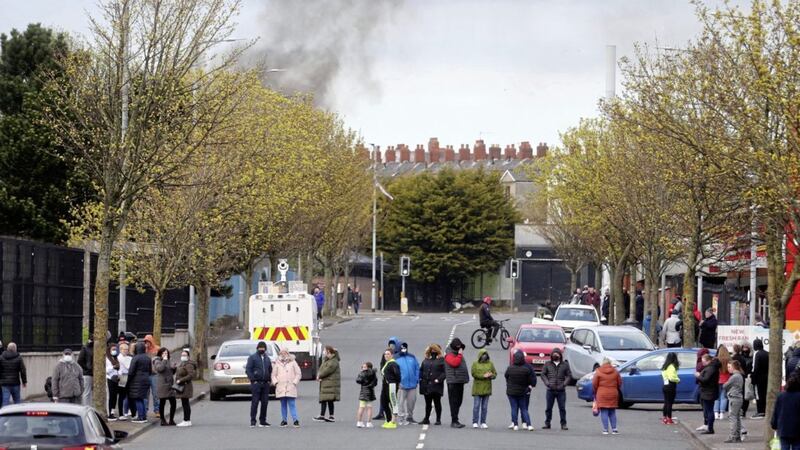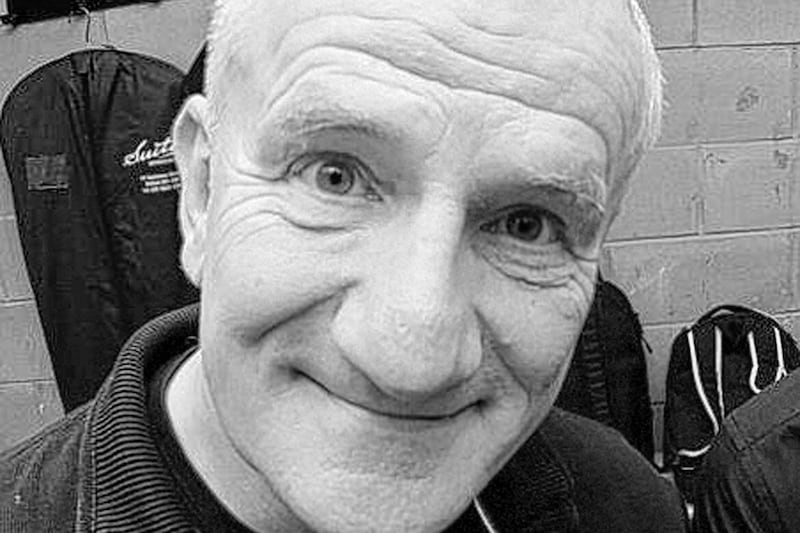‘BUT’ is a small word, but, when used as a qualifier, punches well above its length.
I’ve noticed over the last week that unionist politicians have uttered an awful lot of buts when talking about rioting by their constituents. When asked to condemn the violence, many did a brilliant impersonation of the Vicky Pollard character from the Little Britain comedy show: “Yeah but no but yeah but no.”
Many argue that the intemperate language of unionist politicians over the Northern Ireland Protocol and Bobby Storey funeral inflamed sentiment.
Jim Allister excelled in doublespeak when he commented: "Violence is not justified, was never justified, but the most difficult message I have to sell to young people in the loyalist community is to deal with the reality that violence paid for Sinn Féin/IRA. It worked."
A pallid Ian Paisley, deprived of his usual quota of holidays due to Covid, offered a non-condemnation of the violence, explaining that “… all the condemnation in the world” won’t make loyalist violence over the Brexit protocol disappear.
As the PSNI dealt with violence in Belfast, Newtownabbey, Derry, Carrickfergus, Ballymena and Coleraine, resulting in injuries to 90 officers, First Minister Arlene Foster said that “Confidence is gone [in PSNI Chief Constable Simon Byrne's] leadership and confidence is gone in his senior management team" due to their handling of the Bobby Storey funeral.
She went on to clarify that she hadn’t been in contact with the chief constable. She did, however, condemn the violence, pointing out that the young people involved risked losing their chances of going on holiday.
Images of adults clapping children as they ran to riot hit a new low and begs the question, will those same adults be outside young offenders centres, applauding when some of those children finish their sentence?
What consideration have politicians given to the real impact of their words?
The sight of British citizens attacking a UK police force ostensibly because of a protocol enacted by a British government after a Brexit deal only made possible due to DUP support adds a whole new level to the surreal nature of our society.
Many were shocked by the lack of coverage of the trouble in the British media, both print and television news. While Margaret Thatcher memorably argued that Northern Ireland was as British as her Finchley constituency, we all know that similar rioting in Finchley would be on the front page of every British newspaper and lead every news bulletin.
This media blackout was augmented with complete silence from Downing Street; as far as Boris is concerned, what happens in Northern Ireland stays in Northern Ireland.
Attributing the violence to anxiety over the Brexit protocol might not be the whole story, the catalogue of setbacks incurred by loyalist paramilitary groups is without doubt another contributing factor. With police arrests following the show of strength by the UVF in Pitt Park in February and further arrests of members of the South East Antrim UDA on charges of drug dealing, those organisations are keen to reimagine themselves as defenders of the Union. Their war cry of ‘for Queen and country’ rings hollow as they marked Prince Philip's passing with rioting.
That the Loyalist Communities Council – who speak for the UDA, UVF and Red Hand Commando – announced with great pomposity that they were withdrawing support for the Good Friday Agreement, in the run-up to the 23rd anniversary of that accord. It won’t be lost on many that those same paramilitary organisations were supposed to disband as part of the agreement.
The announcement by the government that they are to allocate £10 million of public funds to help paramilitary gangs ‘transition’ from violence into community groups proves that violence does pay, in one respect.
Considering the news this week from Westminster, I’d suggest unionism forget rioting and instead dig deep and secure the services of David Cameron to lobby this government to secure Northern Ireland’s place in the Union.









